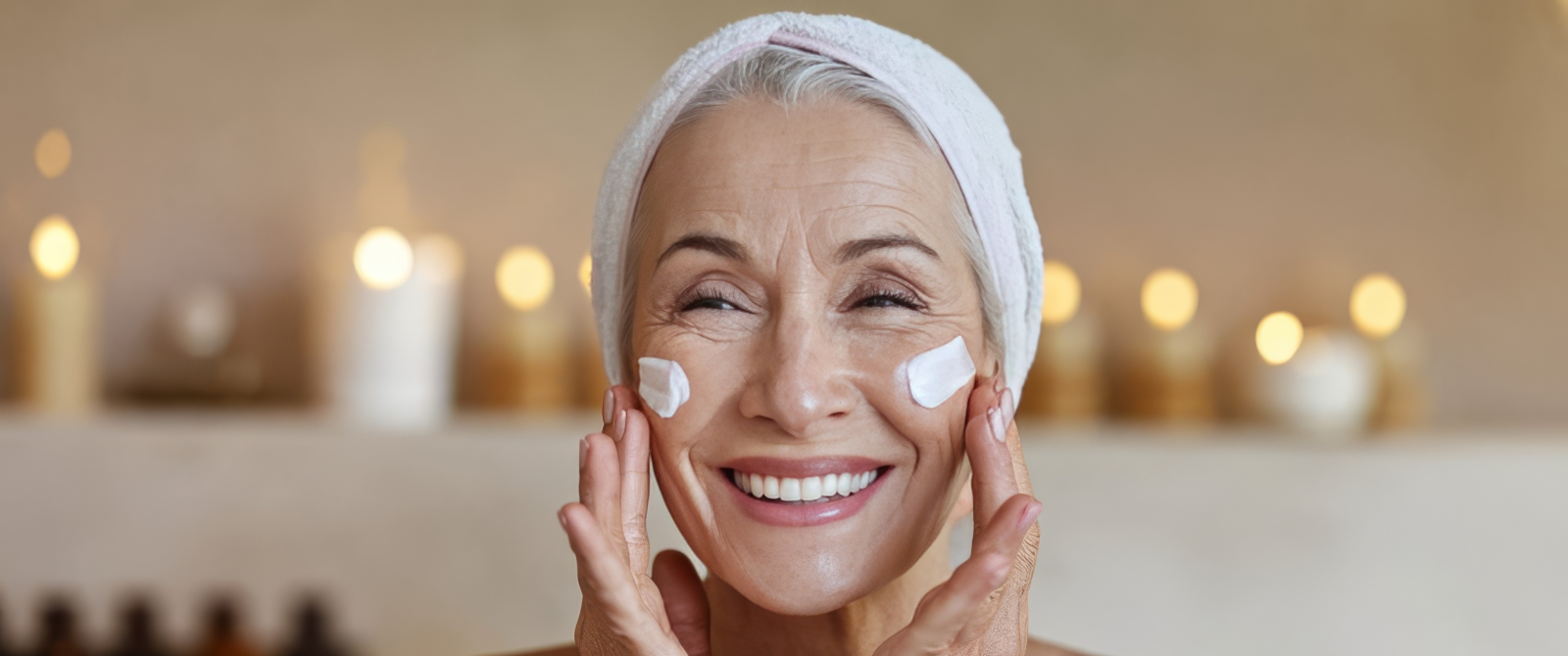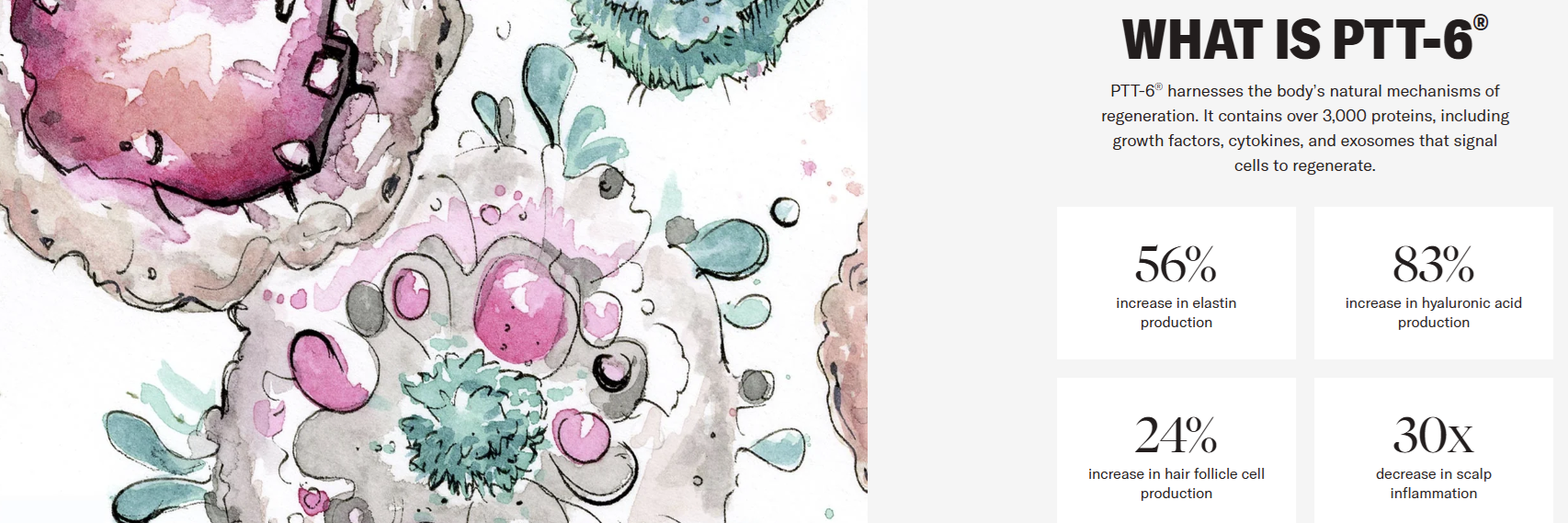Ultimate Guide To A New Menopause Skincare Gift
Aging is a major life transition that can result in a number of emotional and physical changes, but what is we told you there is a New Menopause Skincare. Skincare is an area that many people find particularly difficult. The change in hormone levels during menopause can have a significant impact on your skin and hair. According to PubMed Central, skin problems affect 64% of women undergoing menopause. Understanding menopausal skin issues and the best treatments for skin recovery is essential to maintaining your natural beauty during this stage of life.
In this guide, we will examine common skin changes that occur during menopause, explain how they affect your beauty routine, and provide expert skincare tips.

Menopausal skin care
How Menopause Affects Your Skin
During menopause, the body’s oestrogen and progesterone levels drop, which regulate various skin functions such as moisture retention and collagen production. As a result, your skin may become drier, thinner, and more susceptible to wrinkles. Here’s an overview of some common menopausal skin changes:
Increased Dryness and Moisture Loss
As oestrogen levels begin to drop during menopause, one of the first changes many people notice is an increase in skin dryness. Oestrogen plays a key role in supporting the skin’s natural moisture barrier. Without it, the skin struggles to hold onto hydration, leaving it feeling rough, tight, or irritated. This dryness can worsen over time if not managed with the right skincare routine.
Wrinkles and Sagging Become More Noticeable
Another common concern is the appearance of wrinkles and sagging. Oestrogen supports collagen production, which gives skin its firmness and elasticity. When collagen breaks down more quickly than it’s replaced, skin loses structure. This leads to visible sagging, deeper creases, and more pronounced lines, particularly around the eyes, mouth, and neck.
Thinning Skin and Increased Sensitivity
The skin also becomes thinner with age, and this effect is accelerated by the drop in oestrogen. Thinner skin is more delicate and can bruise easily. It also becomes more sensitive to the environment, especially sun exposure, which increases the risk of long-term damage and visible signs of ageing.
Redness Caused by Hot Flushes
Hot flushes are another hallmark of menopause and can have a direct effect on skin tone. During a flush, blood vessels expand, bringing heat to the surface of the skin. This causes temporary redness, blotchiness, or flushing, which can make skin appear uneven and inflamed, especially across the cheeks and chest.
Breakouts Triggered by Hormonal Shifts
Hormonal shifts can also trigger breakouts in adulthood, even for people who never had acne before. As oestrogen decreases, androgen levels may become more dominant, increasing oil production in the skin. This excess oil can clog pores, leading to breakouts along the jawline, chin, and lower face, which are common problem areas during menopause.
Tips for Menopause Skincare
- Hydrate and Moisturise: One of the most effective ways to combat dryness is to apply a rich, hydrating moisturiser. Look for ingredients like hyaluronic acid, which attracts moisture to the skin, and ceramides, which strengthen the skin’s barrier.
- Use Gentle, Non-Drying Cleansers: Avoid using harsh cleansers that strip your skin’s natural oils. Choose a gentle, hydrating cleanser that maintains your skin’s moisture balance without overdrying.
- Incorporate Anti-Ageing Products: Retinoids, or vitamin A derivatives, can stimulate collagen production, thereby reducing the appearance of fine lines and wrinkles. Use these products with caution, as menopausal skin can be more sensitive. Calecim’s Stem Cell Skincare Products have been proven to be both safe and effective as an anti-ageing solution. These products work to rejuvenate the skin, promoting a brighter, more youthful appearance while enhancing overall skin health.
- Sun Protection Is Essential: Protecting your skin from sun damage is important. The decrease in estrogen makes the skin more susceptible to UV damage, which can cause age spots and further thinning. Apply a broad-spectrum sunscreen with a minimum SPF of 30 every day.
- Add Antioxidants to Your Routine: Antioxidants such as vitamin C and E can help fight free radicals that cause premature ageing. Look for serums or moisturisers that include these powerful ingredients.
- Avoid Hot Showers: While it may be tempting to take a hot shower, it can remove essential oils from your skin. Instead, use lukewarm water to keep your skin moist.
Menopause can significantly impact your skin and hair, but with proper care, you can maintain a radiant complexion and strong, healthy hair. Focusing on hydration, gentle cleansing, and the right skincare treatments, as well as using scalp treatment products for hair recovery, will help you manage the changes that come with this stage of life.
Learning about menopause skincare will not only improve the appearance of your skin but also help you feel better during this transitional period. Remember to include targeted anti-ageing products, such as Calecim’s stem cell skincare products, to give your skin the support it requires for a rejuvenated, youthful glow during and after menopause.
For expert skin and hair care solutions, visit Calecim Professional.
New Menopause Skincare
What happens to your skin during menopause?
During menopause, estrogen levels drop, which leads to less collagen and oil production. This can cause your skin to become dry, thin, and less firm. You might also notice more fine lines, wrinkles, or sagging.
Why is my skin suddenly so dry in menopause?
Estrogen helps your skin stay hydrated by supporting oil glands and collagen. When levels fall, your skin loses moisture more easily and feels dry or tight. This is a common symptom during and after menopause.
Can menopause cause breakouts or acne?
Yes, some women experience adult acne during menopause. As estrogen decreases, testosterone can become more dominant, leading to increased oil production and clogged pores. This can result in pimples, especially around the jawline or chin.
How do I care for my skin during menopause?
Use a gentle cleanser, apply a rich moisturizer, and add serums with ingredients like hyaluronic acid, peptides, or ceramides. Sunscreen is also key, as skin becomes more prone to sun damage. Avoid harsh products that can make dryness worse.
Will hormone replacement therapy (HRT) help my skin?
For some women, yes. HRT may help restore some skin elasticity and hydration by replacing lost estrogen. However, it’s not suitable for everyone and should be discussed with a healthcare provider before starting.



